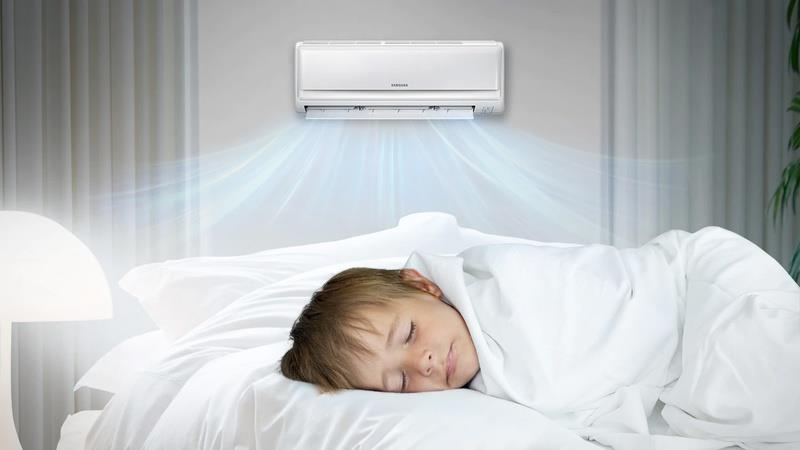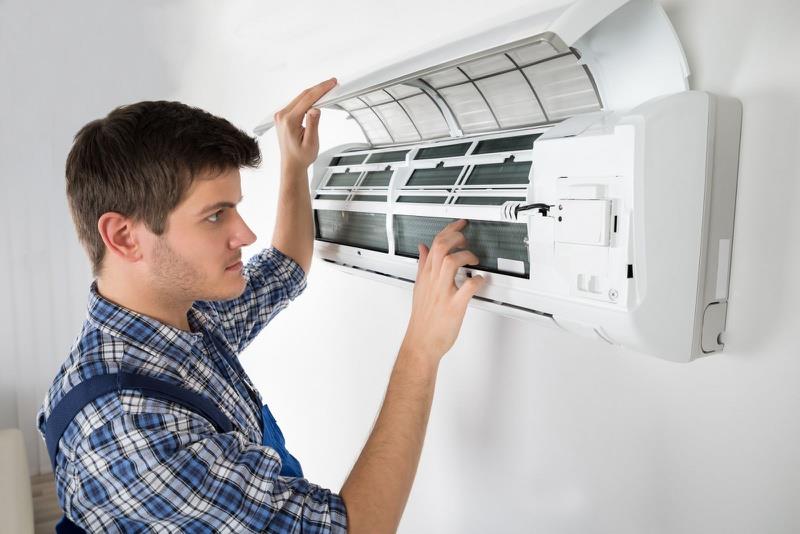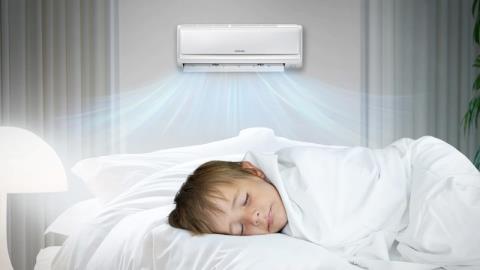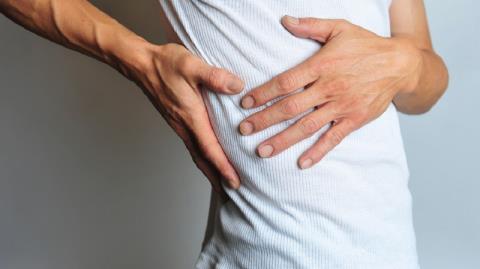Whether a child with a fever should lie down or not is one of the concerns of many parents when unfortunately their child has a fever. So, can the air conditioner be used when the child has a fever?
According to pediatricians, fever is the body's normal response to certain infections. When a child has a fever, the mother's first job is to find a way to reduce the child's fever. Children with a fever can still lie in an air-conditioned room because the cooler temperature helps to bring down the fever faster. However, parents when putting their baby in an air-conditioned room also need to pay attention to the principles to protect the health of their children.
 How does air conditioning affect children's health?
How does air conditioning affect children's health?
How does air conditioning affect children's health?
Air conditioners are not always beneficial for children if they do not know how to use them properly. Air conditioning makes the air in the room drier. For children with sensitive terrain or weak resistance, too low a temperature can cause them to get respiratory diseases such as sore throat, bronchitis, even pneumonia . Air conditioning can also cause children to have dry skin, colds, etc.
There is a common practice during the holidays, many parents choose to let their children sit in an air-conditioned room to stay cooler, avoiding the sun and wind outside. This inadvertently limits children's direct exposure to sunlight, which is a natural source of vitamin D synthesis. At the same time, children's resistance will also be weaker than those who often play outdoors. Children at home, in an air-conditioned room, use less energy, so they are often less hungry, do not eat well, are more prone to obesity or malnutrition.
Should a child have a fever, should he or she be placed in an air-conditioner?
Parents can still put the child in an air-conditioned room when the child has a fever. The reason is that in many cases, air-conditioned rooms make children feel more comfortable and comfortable because the air is cooler.
However, depending on the child's fever, whether or not to use the air conditioner is extremely important. For example, when a child has a viral fever , it is necessary to minimize the time for the child to lie down in the air conditioner. The reason is that when using the air conditioner, the room is always closed, making it easy for the virus to spread to other locations in the room thanks to the air conditioning, increasing the risk of cross-infection.
In addition, the virus has the characteristic of being difficult to destroy in cold environments. This way, not only will your baby not recover in the long run from being in the air conditioner, but he will also be at risk for a cough, cold , or heat stroke. In addition, air conditioning also makes the air drier, making it easier for the baby to become dehydrated.
To use the air conditioner safely when a child has a fever, parents also need to know the following basic principles:
Always keep the air conditioner temperature between 27 and 29 degrees Celsius
Many parents assume that children feel the same heat as adults. In reality, however, while adults feel fit, children can still catch a cold. Therefore, it is necessary to adjust the appropriate temperature according to the body temperature of the child.
When a child has a fever, his or her temperature will be higher than normal. Therefore, the air conditioner needs to be adjusted to a cool level to make the child more comfortable. The optimal temperature for children is between 27 and 29 degrees Celsius.
 Parents should always keep the air conditioner temperature between 27 and 29 degrees Celsius
Parents should always keep the air conditioner temperature between 27 and 29 degrees Celsius
Don't turn on the air conditioner all day
Using the air conditioner all day will mostly make the fever last longer and better. The reason is that the air in the room is constantly cooled, hot and has almost no circulation. This is the ideal environment to increase cross-contamination when the baby is sick. Therefore, parents should turn off the air conditioner 2 to 3 times / day, and actively open the door to let air into the room, helping the room to be more airy. Parents should prioritize the morning times when sunlight can enter the room as much as possible.
Do not suddenly change the child's environment
The temperature difference inside and outside the air-conditioned room is huge. Before leaving the air-conditioned room, parents need to actively open the door a few minutes before, slowly balance the temperature of the two environments, help the child adapt to the change in temperature and air, and minimize the risk of harm. heat shock occurs.
In addition, even when moving indoors, parents also need to limit their children from moving to different areas continuously because each area of the house or a large room may have a temperature difference.
Avoid direct breeze from the air conditioner on the child
If the air conditioner blows directly on the place where the baby lies, it will be very dangerous. High body temperature and cold outside temperatures can lead to heat shock and colds. This not only does not reduce the fever, but also makes the child more susceptible to pneumonia .
Therefore, when using the air conditioner, the direction of the air conditioner should be different from the direction the child lies, and at the same time choose a light fan mode to help air circulate and keep the temperature in the room uniform.
Clean the air conditioner regularly
Cleaning the air conditioner after a period of use is extremely necessary. The reason is that the air conditioner directly filters the air in the room, so there is a large amount of dirt that sticks to the air conditioner bars. Over time, the accumulation of dirt creates an ideal environment for bacteria and microorganisms to grow. This can be a source of illness in children. That's why it's so important to clean and maintain your air conditioner every year.
 Cleaning the air conditioner after a period of use is extremely necessary
Cleaning the air conditioner after a period of use is extremely necessary
Humidify the air in the air-conditioned room
The air in the air-conditioned room is often dry, which can easily cause children to have dry lips, dry mouth , dry hands, etc. Parents can easily improve this situation by placing a basin of water in the room or using nebulizers. humidifier.
Some other notes parents need to pay attention to
When a child has a fever in an air-conditioned room, parents should also note the following points:
- Give children physiological saline to keep the baby's moisture and prevent the nose from drying out.
- Give your child enough water to drink to avoid dehydration. For breastfed babies, maintain and increase your baby's food intake.
- When your baby sleeps, be sure to cover your chest with a thin blanket to avoid catching a cold.
- To maintain adequate nutrition for children, you should choose cool foods to help children cool down.
- Choose cool, sweat-wicking clothes for your child.
In short, when a child has a fever, parents can completely let the child into an air-conditioned room, but pay special attention to the temperature, time of use as well as how to take care of the child so that the child can quickly recover from the illness. With the information in the article about whether children with fever should stay in the air conditioner , SignsSymptomsList wishes your baby always healthy.


 How does air conditioning affect children's health?
How does air conditioning affect children's health? Parents should always keep the air conditioner temperature between 27 and 29 degrees Celsius
Parents should always keep the air conditioner temperature between 27 and 29 degrees Celsius Cleaning the air conditioner after a period of use is extremely necessary
Cleaning the air conditioner after a period of use is extremely necessary






